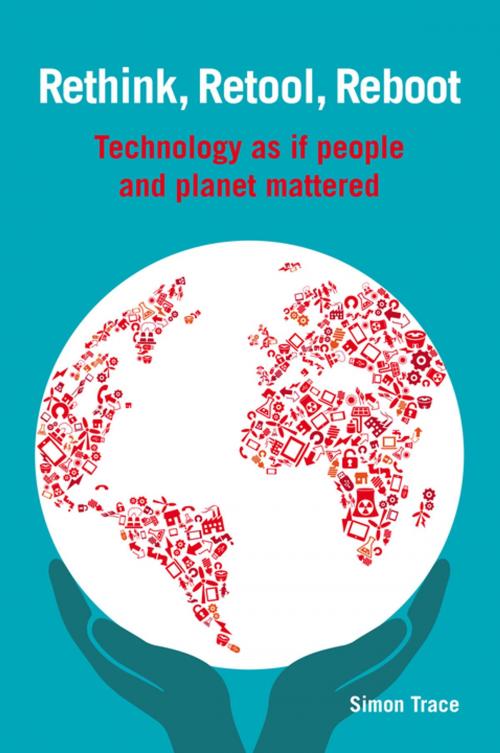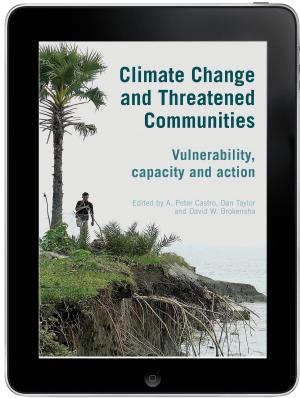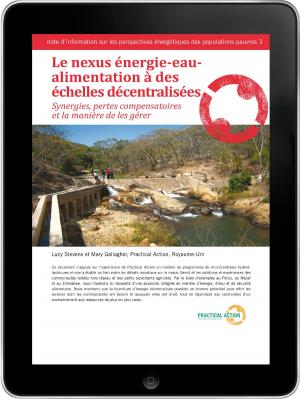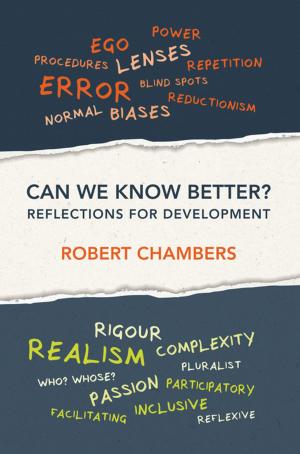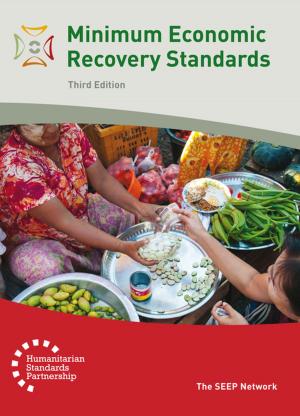Rethink, Retool, Reboot
Nonfiction, Reference & Language, Reference, Social & Cultural Studies, Social Science| Author: | Simon Trace | ISBN: | 9781780449050 |
| Publisher: | Practical Action Publishing | Publication: | July 15, 2016 |
| Imprint: | Practical Action Publishing | Language: | English |
| Author: | Simon Trace |
| ISBN: | 9781780449050 |
| Publisher: | Practical Action Publishing |
| Publication: | July 15, 2016 |
| Imprint: | Practical Action Publishing |
| Language: | English |
Technology underpins human development. We need it to provide the very basics of a minimum standard of life – food, water, shelter, health and education. But a significant proportion of the world’s population do not have these basics today. And whilst a fifth of the world’s population lacks access to technologies fundamental to a basic standard of living, unfettered use of technology by those who have it brings its own problems – including pollution, global warming and threats to the sustainable future of humanity. So why are we so slow to address these issues? Why is it that the drivers of innovation mean we are more likely to see research into a cure for male baldness than a malaria vaccine or into methods for extracting shale gas as opposed to solutions to store renewable energy? We need to rethink the purpose of our technological endeavour and how we provide access to and govern the use of technology today. We need to retool – to change the alignment of our innovation systems to deliver technology that is socially useful and addresses the key challenges of poverty and environmental sustainability. Above all, our relationship with technology needs a reboot. We need a different frame of reference – Technology Justice – to provide a radically different approach to our oversight and governance of the development and use of technology. Rethink, Retool, Reboot addresses vital questions regarding the future of our world and the people living in it. It should be read by academics, students, activists and all those interested in international development and the environment.
Technology underpins human development. We need it to provide the very basics of a minimum standard of life – food, water, shelter, health and education. But a significant proportion of the world’s population do not have these basics today. And whilst a fifth of the world’s population lacks access to technologies fundamental to a basic standard of living, unfettered use of technology by those who have it brings its own problems – including pollution, global warming and threats to the sustainable future of humanity. So why are we so slow to address these issues? Why is it that the drivers of innovation mean we are more likely to see research into a cure for male baldness than a malaria vaccine or into methods for extracting shale gas as opposed to solutions to store renewable energy? We need to rethink the purpose of our technological endeavour and how we provide access to and govern the use of technology today. We need to retool – to change the alignment of our innovation systems to deliver technology that is socially useful and addresses the key challenges of poverty and environmental sustainability. Above all, our relationship with technology needs a reboot. We need a different frame of reference – Technology Justice – to provide a radically different approach to our oversight and governance of the development and use of technology. Rethink, Retool, Reboot addresses vital questions regarding the future of our world and the people living in it. It should be read by academics, students, activists and all those interested in international development and the environment.
